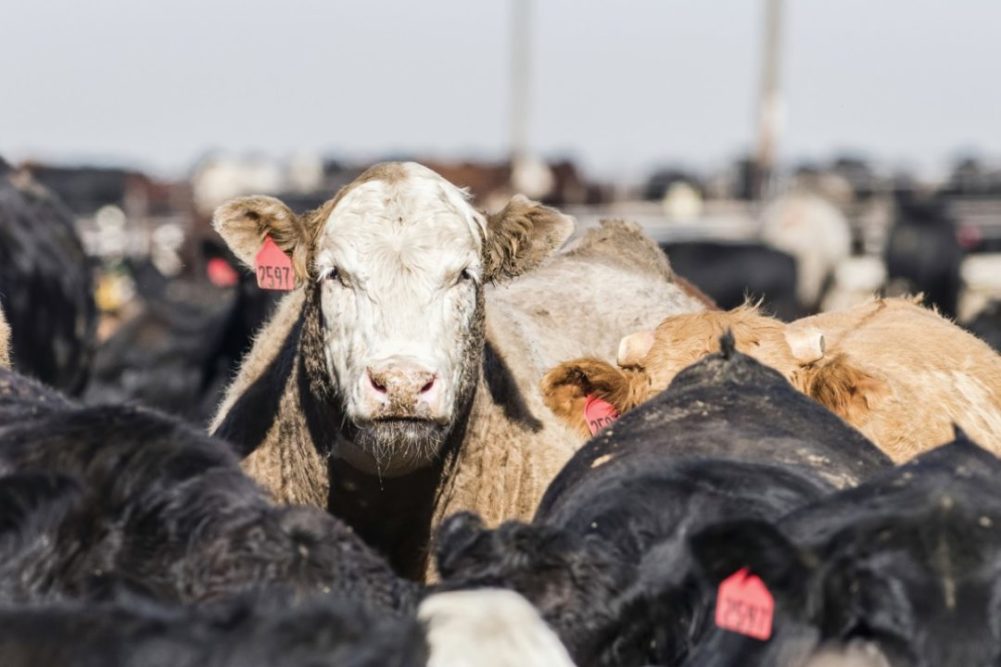LONDON – Producers of animal proteins are taking some steps to lessen environmental impacts of intensive animal raising for food. But overall, the industry is unprepared to make the transformative changes necessary to realize goals set out in the United Nations climate change conference COP26 deal, according to data compiled by the Farm Animal Investment Risk & Return (FAIRR) Initiative as part of its Coller FAIRR Protein Producer Index.
Key findings from the most-recent index include:
- 0nly 18% (nine of 49) of livestock producers measure even partial methane emissions, undermining the sector’s ability to play its part in a global deal for 30% methane reductions struck at COP26 this month.
- 42 of 45 (93%) meat and dairy firms including San Miguel (Philippines) and Minerva (Brazil) which source soy (for animal feed) from high-risk deforestation areas such as the Cerrado (Brazil), do not have a policy to mitigate deforestation in all sourcing areas.
- Three Norwegian aquaculture firms are represented in the Top 5 Index companies: Mowi ASA (1st), Grieg Seafood ASA (2nd) and Lerøy Seafood Group ASA (4th), with the highest-ranking meat and dairy firms being Maple Leaf Foods (Canada), Marfrig (Brazil) and Fonterra (New Zealand).
- With feed prices reaching an eight-year high, driven partly by extreme weather, nine meat, fish and dairy firms are investing in sustainable feed ingredients or production to de-risk their supply chains. For example, UK-based Cranswick PLC is trialing feed based on insect protein, peas and beans and JBS S.A. (Brazil) have partnered with Netherlands-based DSM to implement a feed additive to reduce methane emissions from digestion in cows.
- Nearly half (28 of 60) of Index companies now have exposure to alternative proteins, compared to just a quarter (15) in 2019. Seven meat companies report investments in cultured meat. Thai Union have formed partnerships with cultured meat start up Aleph Farms and cultured seafood start up BlueNalu Inc.; and JBS entered the space with a $100 million investment in the acquisition of Spanish cultivated meat firm BioTech Foods SL, and a cultivated meat R&D center.
Established by Jeremy Coller in 2015, FAIRR is an investor network with a membership of $45 trillion assets under management. The Coller FAIRR Protein Producer Index, now in its fourth year, assesses 60 publicly listed animal protein producers worth a combined $363 billion (49 primarily produce meat and dairy, 11 aquaculture), against 10 environmental, social and governance (ESG)-related factors including greenhouse gas emissions, deforestation, antibiotic usage and investment in alternative proteins. The data is provided free to investors to help them integrate ESG data into their investment decisions.
Patrick Peura, ESG Engagement Manager, Allianz SE said, “FAIRR data gives investors a highly valuable basis on which to engage animal agriculture companies. The Index helps identify positive examples of leadership – such as investment in feed innovation, effective target-setting and climate risk scenario analysis – which the rest of the sector can learn from.
“Importantly, the Index also sheds light on the gaps that still need to be addressed in the sector – such as the failure of a majority of companies to adequately monitor, report and manage their GHGs like methane from animal waste. It is critical that investors continue to engage with firms constructively to support solutions in the sector, and the index helps us do that.”
Coller said the world is at an inflection point in which the leadership emerging in parts of the animal protein industry must be harnessed to transform food in general and protein specifically.
“The post-COP26 era leaves large parts of the meat and dairy supply chain looking outdated and unattractive,” Coller said. “Failures from methane to manure management underline the growing sense in the market that cows are the new coal.
“As the largest driver of both methane from human activity and deforestation, the ambitions set at COP26 handed a big slice of responsibility to the food and agriculture sector,” he continued. “We cannot deliver the COP26 commitments without addressing the protein supply chain. More political and regulatory focus on the food industry is now inevitable, but currently only 20% of meat and dairy giants measure even some part of their methane emissions. This should be a red flag to markets given the COP26 commitment to reduce methane 30% globally by 2030.”




